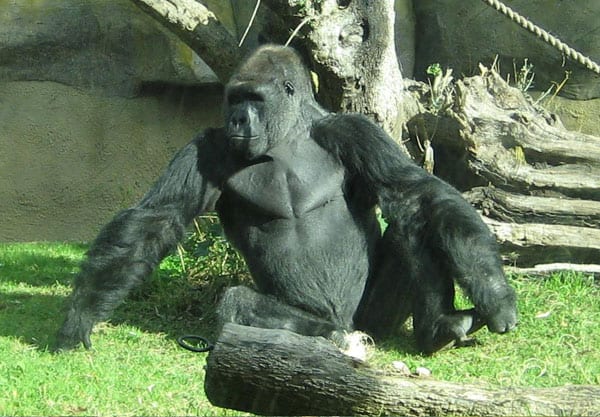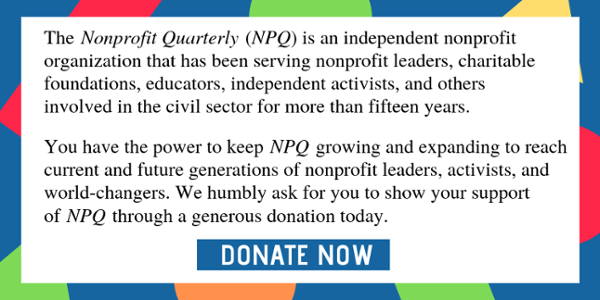
December 17, 2018; Cincinnati Public Radio
What appears to be a custody battle over a gorilla is looking increasingly like bickering over reputation between the Cincinnati Zoo (CZ) and the Gorilla Foundation (TGF). Earlier this week, US District Judge Richard Seeborg ordered both parties to pursue a joint resolution of their dispute, reports Tana Weingartner for Cincinnati Public Radio.
The dispute concerns a male silverback gorilla named Ndume, who is 37 years old and weighs 400 pounds. Readers may remember Koko the gorilla, who learned to communicate with humans through sign language. In 1991, Koko’s caretakers at the TGF in California allowed her to choose a mate “via a process akin to video dating,” and she chose Ndume. The zoo had signed a contract to loan Ndume to the foundation for the duration of Koko’s life, and though the two never became mates, they were lifelong friends.
Koko died this past June at age 46, and the Association of Zoos and Aquariums recommended in August that Ndume be returned to his birthplace in Cincinnati. However, TGF has decided that considering Ndume’s age, transport is too dangerous for him and they won’t send him back.
Correspondence between the organizations seems to have become strained. TGF says the zoo “refused to respond” to requests for mediation; the zoo says TGF “cut us off.”
In October, the zoo filed a lawsuit to get its gorilla back. This week, Judge Seeborg ordered the parties to pursue “expedited alternative dispute resolution.” Seeborg added that the courtroom “may not allow for a full, and fully-informed, evaluation of all of the potential impacts to Ndume,” which is, after all, both parties’ purported main concern.
Since both parties claim the gorilla’s best interest, the arguments have begun to stray from the strictly scientific. The Association of Zoos and Aquariums (AZA) and People for Equitable Treatment of Animals (PETA) have both sided with the zoo, partly because the Gorilla Foundation does not have any other gorillas with whom Ndume could socialize. Like their human cousins, gorillas grow depressed without community.
The zoo is an AZA accredited institution, while the foundation is not, a factor that appears to be a sore point. TGF complained, “AZA has refused or blocked every attempt we have made to create a natural gorilla family group for him. We are not an AZA institution, and we are fully aware of the steps taken to prevent TGF from obtaining any new gorillas.” AZA, which had charge of the recommendation after Koko’s death, does not place animals in non-accredited institutions.
The foundation also claims that the reason Koko and Ndume never mated is that “Koko was never given the opportunity (by the zoo community) to have a natural gorilla family group—with multiple females and one male.”
Sign up for our free newsletters
Subscribe to NPQ's newsletters to have our top stories delivered directly to your inbox.
By signing up, you agree to our privacy policy and terms of use, and to receive messages from NPQ and our partners.
TGF said that Ndume “has done very poorly in zoos” and that when he overheard conversations about transferring him back to the zoo, he “cried, gave hoot-series, screamed, banged and shoved objects for 14 hours straight, all indicating extreme anguish.”
Ndume was not allowed to learn sign language alongside Koko, TGF added, because zoo officials worried that he would communicate his unhappiness about his life in Cincinnati. Officials allege that this learning restriction was part of the same contract on which the zoo is basing its reclamation of Ndume.
Though Ndume is elderly, he likely has at least a decade of life yet; gorillas in captivity can live to their 50s. A zoo in Cleveland is conducting research about how to better design their diets to support cardiovascular health.
CZ recently updated their gorilla enclosure and already houses ten gorillas, three of whom are Ndume’s relatives. The Gorilla Species Survival Plan (SSP), which is governed by AZA, said,
The SSP is confident that the Cincinnati Zoo will provide Ndume with outstanding care, access to modern, flexible, and specialized gorilla living areas, and a myriad of socialization options as he makes this transition. We’re all looking forward to seeing Ndume thrive in the company of other gorillas.
PETA vice president of captive animal law enforcement Delcianna Winders called TGF facilities “tumbledown” and said that the foundation “as a history of failures in veterinary care and cleaning.” Their forms 990 from the past five years show frequent funding deficits.
Is this a case of TGF trying to leverage its one famous gorilla into a larger presence in the zoo community? Or is the CZ bullying a smaller, unaccredited organization with the weight of institutional power? And at the end of the day, how are these organizational fights affecting the well-being of Ndume, who for whatever reason did not learn sign language alongside his friend?
We at NPQ abhor this treatment of Ndume, who seems to have been without companions of his own species since Koko’s death in June, and would encourage concerned readers to contact the organizations involved.—Erin Rubin













